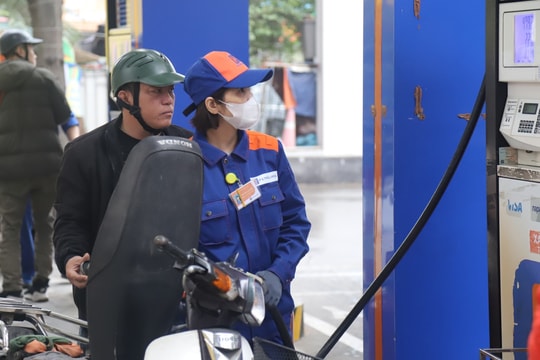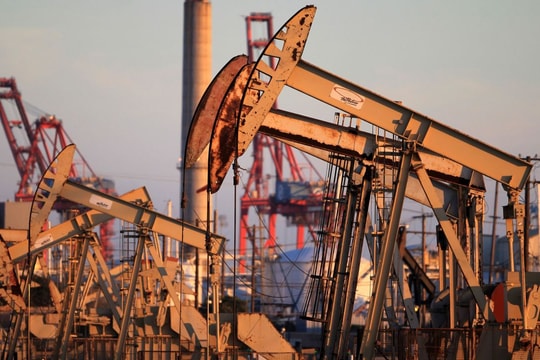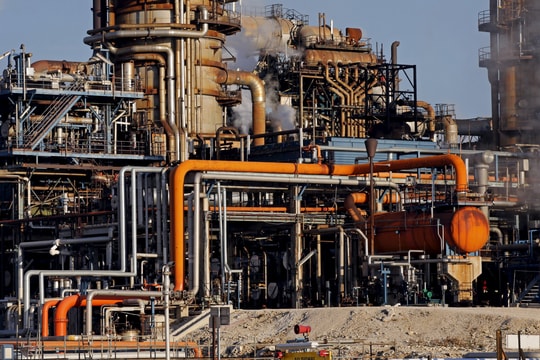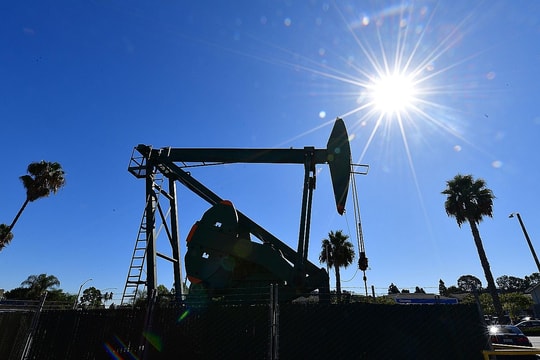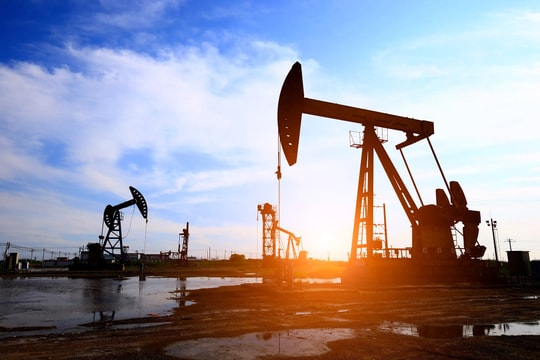Businesses want to decide their own gasoline prices
Businesses believe that if they are allowed to decide on gasoline prices, the market will be transparent, while experts object because the timing is not appropriate and a roadmap is needed.
The draft Decree amending and supplementing Decree 95/2021 and Decree 83/2013 on gasoline and oil trading was submitted by the Ministry of Industry and Trade for comments. In particular, the Ministry proposed two options for managing gasoline and oil prices. One is to continue managing gasoline and oil prices as they are now, but amend the base price formula to add some actual costs incurred by businesses... Option 2 is that the State only announces the guideline price, businesses will determine and set retail gasoline and oil prices themselves after adding actual business costs.
A survey of 20 key petroleum and oil enterprises and distribution systems in Ho Chi Minh City and Hanoi showed that 80% of enterprises said they agreed with option 2 because when they are allowed to make their own decisions, the petroleum and oil market will be competitive and transparent.
A representative of Ho Chi Minh City Petroleum One Member Co., Ltd. said that when the selling price is determined to be true to reality, it will be easier for businesses to import and distribute goods.
"However, within the framework of self-determination, price calculation still requires State management to correctly and fully calculate input prices for key import enterprises," said a representative of Saigon Petro.
He cited that it normally takes 15-20 days for imported gasoline and oil to reach the warehouse. Therefore, the State needs to base the price on the day the goods arrive at the warehouse to calculate the base price. At this time, the base price will be accurate after adding related costs. This helps ensure the supply and reserves of businesses.
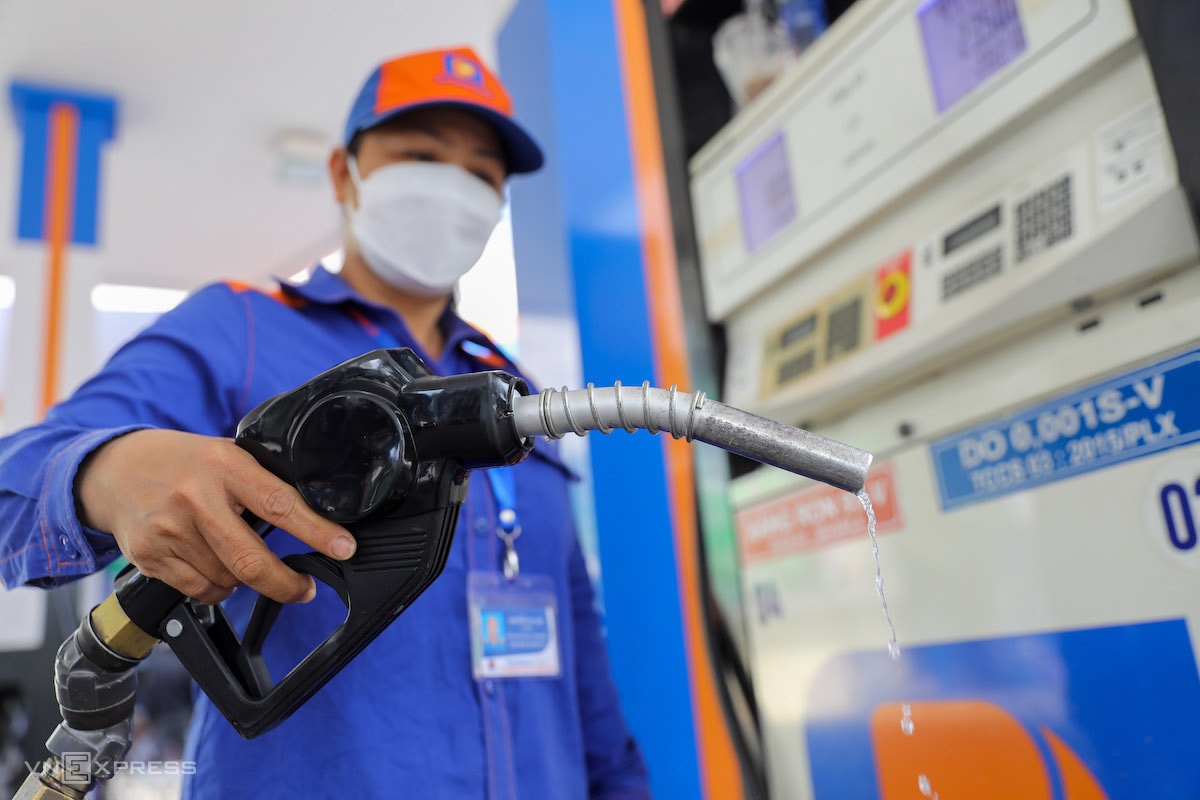 |
| Businesses believe that if they are allowed to decide on gasoline prices, the market will be transparent. Illustrative photo |
Similarly, the representative of the petroleum import hub in Dong Nai said that the adjustment of petroleum prices by enterprises will have a positive impact on the market, helping to make prices competitive. At the same time, consumers will be able to buy gasoline at attractive prices while still ensuring a minimum profit for the enterprise.
According to the director of this enterprise, if the current "jerky" management continues, the number of key and distribution enterprises will continue to leave the market this year because they are suffering losses. Many distribution units have been "struggling" since June with losses of up to billions of dong.
"Only when the State gives power, businesses will be more proactive in selling prices and sources of goods, then the gasoline and oil market will be less unstable like in 2022," said the director of a gasoline and oil business in Dong Nai.
Some businesses are also concerned that letting petrol and oil retailers make their own decisions could disrupt the market.
The representative of Thu Duc Import-Export Trading Joint Stock Company said that this needs to be tested and planned because there may be a situation of "big fish swallowing small fish". In particular, 70% of the Vietnamese gasoline and oil market is state-owned enterprises - a group that is supported and favored more than private enterprises. When they have many advantages, it will be easy for them to import shipments at good prices and sell them to the market at cheap prices. At that time, private enterprises with small capital will be eliminated from the market and the monopoly of gasoline and oil may occur.
Also opposing the option of letting businesses decide for themselves, Associate Professor Dinh Trong Thinh, a senior lecturer at the Academy of Finance, said that it is not the right time for Vietnam to "freeze" the price of this item.
"The State still has to control, that is, set a price ceiling so that businesses can compete on costs to reduce selling prices. It cannot completely let the market decide because this is a strategic item, in the price stabilization list," he said.
Mr. Tran Van Lam - Member of the Finance and Budget Committee also analyzed that Vietnam is a socialist-oriented market economy, so important essential goods such as gasoline, oil, and electricity need the State's management participation.
Besides the option of calculating gasoline and oil pricesThe draft also proposes a plan to reduce the time for managing gasoline prices from 10 days to 7 days and fix it on Thursdays every week, except for the 3 days off for Lunar New Year. However, most businesses believe that this proposal does not completely solve the problem because they have all purchased goods half a month in advance. Therefore, if the time for managing prices is to be reduced, it should be reduced from 10 days to 3 or 5 days.
According to Associate Professor Dinh Trong Thinh, domestically produced gasoline and oil also have to import crude oil for production, so Vietnam is not completely proactive. The purchase of gasoline and oil from domestic refineries is under a term contract. Enterprises have actually purchased in advance, and when the goods arrive, they sell gasoline and oil that they purchased at least 15 days in advance, so shortening the operating time to 7 days does not have much impact on retail prices. Not to mention, changing the operating cycle also generates management costs for enterprises and the State.
With the proposal to assign a unified focal point, the Ministry of Finance, to manage gasoline and oil prices,Businesses and experts believe that ministries are shirking responsibility and that assigning 100% management to the Ministry of Finance is unreasonable.
Mr. Nguyen Manh Hung - Standing Member of the Economic Committee said that this proposal is not convincing. According to him, the new Law on Prices is in the process of being amended, aiming at a specialized management agency to manage prices. However, gasoline and oil are special products, related to energy security, impacting the macro economy... so the Ministry of Finance only coordinates in price management.
"Ministries still have to coordinate in managing this item, it cannot be just the Ministry of Finance because gasoline and oil have special characteristics. That means one focal point should still be assigned to take the lead, while other ministries and branches coordinate," he said.
Sharing the same opinion, Associate Professor Dinh Trong Thinh said that the Ministry of Finance used to manage this item, but then transferred it to the Ministry of Industry and Trade since Decree 83/2014 took effect and has been stable since then. The Ministry of Finance only controls tax regulations and pricing structure; it does not manage market supply and demand. Meanwhile, in reality, the business of gasoline and oil, according to Mr. Thinh, has the characteristics of commercial business.
"Export, import, market supply and demand management, purchase and sale relations with domestic refineries, retail organizations... are all managed by the Ministry of Industry and Trade. Therefore, assigning the Ministry of Industry and Trade to uniformly manage this item is appropriate," Mr. Thinh commented.
If the current inter-ministerial management mechanism is maintained, he noted that ministries and branches need to proactively coordinate to avoid the situation of the soccer ball being kicked back and forth that happened last year.
On January 7, the Ministry of Industry and Trade said that in the process of collecting opinions from relevant parties, 3 options were proposed regarding the assignment of responsibility for managing gasoline and oil prices, including the option that the Ministry chose to assign the focal point for reviewing costs and calculating and managing gasoline and oil prices to the Ministry of Finance. The Ministry said that this was an option to solicit opinions in order to receive more comments and feedback for this proposal. That is, the option the Ministry chose stated in the draft Decree and the draft Request for Comments "is not the final option of the Ministry of Industry and Trade to submit to the Government for consideration and decision". After receiving comments from relevant units, the Ministry of Industry and Trade will synthesize and propose the most suitable option, and submit it to the Government for consideration and decision.
At the fourth quarter press conference on the afternoon of January 9, Deputy Minister of Finance Nguyen Duc Chi expressed his views on the Ministry of Industry and Trade's proposal to assign this agency to be the focal point for managing and operating gasoline and oil prices. He said that the final decision belongs to the Government and the Prime Minister when amending the Decree./.


